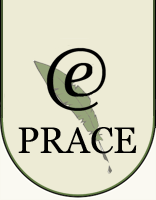
Introduction
The purpose of this paper is to show British presence in the culture of the republic of Ghana, a small country in West Africa, and its over 20 million population, whose development into its present shape was strongly influenced by the past of the country. Ghana remained the British colony from 1874 to 1957 under the name of the Gold Coast due to the abundance of gold in its area. The multitude of British traces in Ghana dates back to that period and is a result of the policy of the colonial authorities, whose aim was to turn their protectorate into “small Great Britain” by replacing everything indigenous and thus creating a new civilization on the grounds of the one they met on their arrival in 1874. Colonisation of the Gold Coast involved not only the establishment of the British administrative system, but also the imposition and implementation of cultural patterns represented by the colonists. Therefore Christianity, formal education and the English language were introduced along with British housing and architectural patterns, media, drama, theater, European political ideologies and customs in every-day life.
The first chapter of this paper presents the reader with the historical outline of British influences on the culture of the republic of Ghana and thus analyses the arrival of the British to the west coast of Africa, establishment of the colony of the Gold Coast and colonial jurisdiction, which by the introduction of indirect rule won favour with local chiefs, who were recognized by the natives as the local authorities. The new power the chiefs were given made it easier for the colonists to spread their colonial policy to the indigenous population of the colony, which was often illiterate and able to communicate only in vernacular language, known to the chiefs but not the newcomers. On the subsequent pages of this chapter the reader is presented with the policies of the colonial government until 1957, when the colony attained independence, numerous alterations and promulgations aimed at the establishment of colonial policies concerning the existence of the colony and its development in terms of education and infrastructure which were supposed to serve both the interests of colonists and cultural development of their subjects.
The second chapter deals with the introduction of British culture and its implementation in the life of the population of the Gold Coast during the colonial period. The analysis covers such means as formal education, propagation of Christianity and introduction of Christian practices, urbanization and transformation of rural districts, the emergence of mass media, drama and theatre as well as the shaping of the political system.
Third chapter offers the reader an insight into the adaptation and place of British cultural legacy in the reality of post-colonial Ghana and its residents. The description deals with the aspects of culture already mentioned in chapter two, but from different perspective – place of British cultural heritage in the present-day life of Ghana.
This is followed by conclusions, a summary in Polish and a bibliography.
komentarze
Copyright © 2008-2010 EPrace oraz autorzy prac.